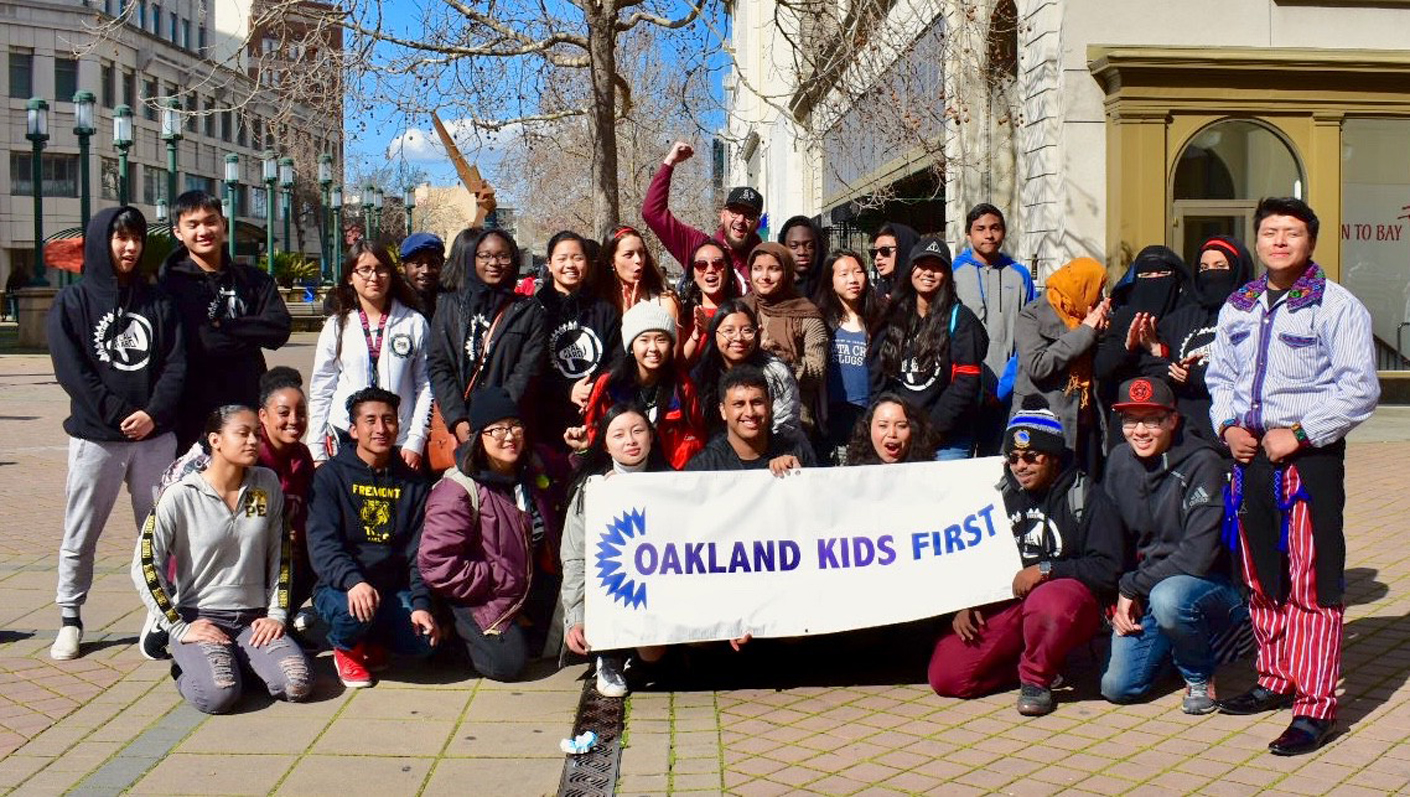Written by Joshua Lee, a former San Francisco Foundation fellow who helped oversee the Rapid Response Fund between 2019-2021.
Back in 2019, I spent every Tuesday night sitting in the downtown Oakland office of Oakland Kids First. Back then, I was the Executive Director of AYPAL: Building API Community Power, an Oakland nonprofit that organizes Asian American and Pacific Islander youth. In that role, I would often join other adults, youth, parents and teachers from youth-organizing nonprofits to talk about how we could collectively push for equity for Black, Indigenous and people-of-color students in Oakland.
During those meetings, the topic of school board leadership often came up due to the fact that district budgets were, and continue to be, so key to addressing inequity in schools. But without the ability to vote in school board elections, students had a hard time making sure that the school board took their needs into account when making decisions.
I got the chance to interview Oakland Kids First Youth Leader Malia Liao, who has been with the organization since she was a 9th grader at Oakland Tech. “We kinda felt like we were invisible,” she says. “And our actions and our voice wasn’t really being heard.”
A year later, in 2020, Oakland Kids First and partner student groups were able to get Measure QQ on the ballot in Oakland — a measure that would allow 16 and 17-year- olds to vote for members of school boards. Once on the ballot, the intergenerational, coalition-based organization had only a few short months to educate voters on why QQ was important for Oakland.
While I was a fellow at the San Francisco Foundation overseeing the Rapid Response Fund, Oakland Kids First received a grant from the fund. The grant allowed them to double down on digital campaign work in lieu of door-to-door campaigning that wasn’t safe to do during a pandemic to engage new and infrequent voters in the November election. As one of the youth campaign leaders, Ms. Liao made dozens of calls to voters. She and fellow organizers often had to explain to adults that youth are capable of making decisions about their own lives, especially when they involve the schools that young people attend.
In November, Oakland voters approved QQ with 67% of the vote, allowing 16 and 17-year-olds to vote for school board members. A similar measure has passed in Berkeley. This is a turning point victory for increasing youth access to voting, and to date, Oakland is the largest jurisdiction in the nation to pass such a measure. This youth-driven measure demonstrates the power of the most impacted people creating a more equitable society.
Ms. Liao is now a senior heading to San Diego State University this fall. Her leadership in the QQ campaign was inspired not just by her experience as an Oakland student, but also by her family’s own experience. Her parents, who are immigrants from Vietnam and China, are not eligible to vote. Her hope is that Measure QQ helps to expand voting opportunities for other disenfranchised members of our community. “Voting paves a path towards institutional change,” she says. “It’s an opportunity for everyday people to influence legislation and circumstances that really impact us.”


